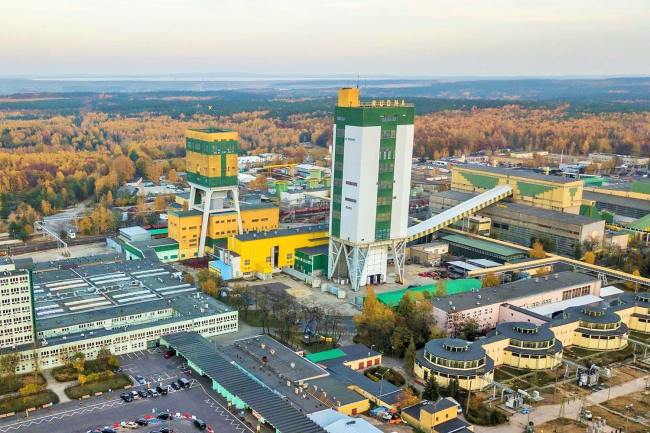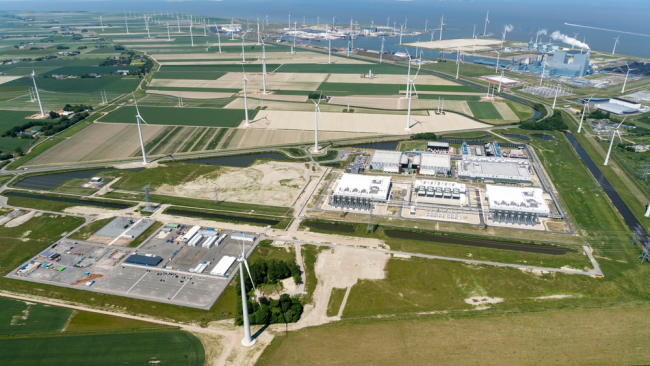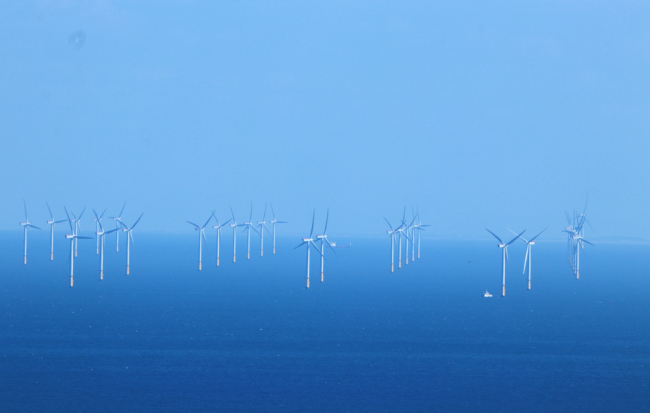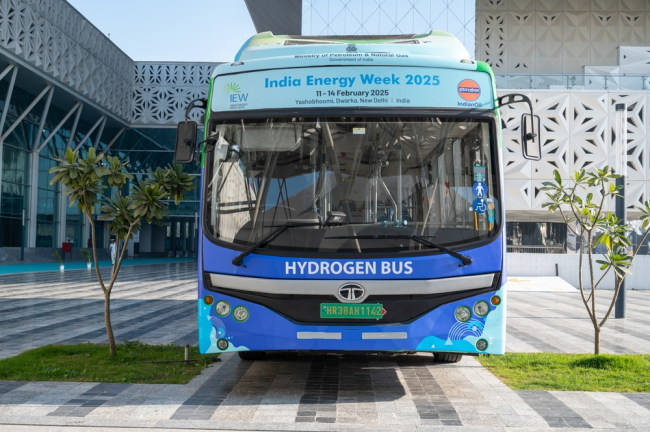Ownership Unbundling in Energy Markets. An Overview of a Heated Debate in Europe

The process of power market liberalisation pushed by the European Commission since two decades is entering a new phase with the debate over the ownership and regulation of energy transport infrastructure. The issue is at the heart of the process of dismantling vertically integrated national champions, creating a more competitive market for power production and have strong, independent regulators oversee natural monopolies such as high-voltage grids. The Commission in its so-called 3rd package sees ownership unbundling as the key element to limit the ability of European electricity producers to exert market power in the complex technical interaction between production, transport and distribution. Together, new ownership arrangements, a reliable regulatory infrastructure (ERGEG+…) and a technically highly proficient market monitoring unit (ACER…) are thus part of the new package that is currently debated among stakeholders the European power market2008 is going to be the year of the “third package”, reduced in many reports to its main component: Unbundling.
“Unbundling”, a technical notion since its origin, has entered into the vocabulary of a broader public. Seemingly technical, the debate is in fact a highly philosophical one. Applying to telecoms, and railways as well and realized there already, it is today subject to important intra-European polemics in energy markets. After presenting the current state of the Commissions" project, as well as the decisions to be taken in 2008 on the so called “third legislative package”, the pro - and con arguments will be the main focus of this editorial; an editorial which seeks to increase transparency, rather than to take a position in favor of or against.
Defining “unbundling”
Unbundling is defined as the separation of production and supply, of vertically integrated activities where the transport assets constitute monopolies. Unbundling occurs through different forms: From the setting up of transportation system operators (TSO: like RTE in France or National Grid in the UK; normally and due to the approach of a “natural monopoly” there is only one TSO in one country), legal unbundling, which means the legal separation of enterprise and the grid operator, the independent system operator, and then, as the extreme version, the “full”, or ownership unbundling, which has been termed “expropriation” by some enterprises. But even ownership unbundling occurs through different forms: From a common shareholding of the grids by different producers, like in Scotland, where the two electricity own the grid, to minority shareholding of the enterprise in the grid as in Finland, and then with the most radical form, introduced in England in the Eighties. Unbundling means also that the grids can not possess the enterprises, or, the grid never possesses the goods they transport. In all cases, unbundling aims at introducing more competition into the market and at putting an end to discrimination potentially exercised by the holder of the natural monopoly.
The situation in EU member states proves thus to be very heterogeneous with states having realized a radical ownership unbundling (Sweden, UK, Spain), those preserving minority shares in the grids (Finland), and those with mighty regulators but rather " vertically integrated " production and transmission structures- the case of Germany or France, nowadays the strongest opponents of the Commissions" ownership unbundling proposal, with different backgrounds for their arguments though.
From liberalization to “ownership unbundling”: The third “package” of the Commission
A first liberalization package was adopted in the late 1990s (1996) and addressed common rules for internal electricity markets , followed by directives on common rules for the internal natural gas markets in August 1998 . This “first package” was followed by a “second” in 2003 (in particular the Directives 2003/54/EC for electricity, and 2003/55/EC for gas), insisting in particular on the necessity to harmonize the rules of the game across EU member states. After the Hampton Court informal summit of heads of State and Government in autumn of 2005, and in light of the conflicts opposing Russia and its neighbors (conflict with Ukraine in January 2006, Belarus in January 2007), the Commission's project internationalized: Brussels presented, in March 2006, a Green Paper on “A European Strategy for Sustainable, Competitive and Secure Energy” , presenting thus a complex approach which went far beyond the traditional internal market approach, with a new priority on security of supply and sustainability. As for the results of previous liberalization, the Commissions assessment was extremely negative: A survey carried out in 2005 and 2006 on competition in the gas and electricity sector concluded “that consumers and businesses were losing out because of inefficient and expensive gas and electricity markets” . It also considered that a high level of market concentration, vertical integration and supply, generation and infrastructure lead to a lack of equal access as well as insufficient investment in infrastructures. Access to transnational interconnectors is not equal either. Even if the first two packages were applied, the “inheritance from the past” within the Member States continuously offset any new rules. For this reason, Brussels took a much more radical stance in 2007: As requested by the European Council summit on March 8th, and strongly encouraged by the European Parliament on July 10th, 2007, the Commission presented a “third package” on September 19th, 2007. Unbundling is a prominent issue in this package, and it leaves the Member States the choice of two options: “ownership unbundling” versus an “independent system operator.”
Consent on the objectives and the necessity of effective separation…but dissent on “how to get there”: The Unbundling debate.
Delegations agree on the overall objectives of the European energy policy, the threefold guarantee of security of supply, competitiveness and environmental sustainability, as well as that “effective separation of supply/generation activities from transmission network activities have to be achieved” (ENER 277/CODEC 1252, November 16th 2007). But they strongly disagree on how the general objectives should be reached. In particular, concerning the choice between ownership unbundling or an independent system operator, several countries see the ISO as nothing more than another type of ownership unbundling.
In fact, the Commission"s insistence on ownership unbundling as a precondition for a successful European energy policy is considered being excessive by a number of Member States, first of all France and Germany. As the French energy expert Jean-Marie Chevalier writes, there is a need to pass from a common vision to a common European energy policy. But how? The General Directorate Competition (DG Comp) suggests classical anti-trust measures based on articles 81, 82 and 86 of the EC Treaty and puts strong pressure on the General Directorate for Transport and Energy (DG TREN) to go further in this sense. The latter has also set up the nucleus of a European regulator, ERGEG , which could potentially - as 'ERGEG plus', contribute to an improved trans-European regulation and transport - a potential alternative? Observers criticized the confusion between competition policy on one hand, and the design of a comprehensive energy policy on the other.
Many questions occur:
- Does ownership unbundling really improve competition in the internal market?
- How to guarantee the necessary investments in infrastructure, once enterprises and the grid have been unbundled?
- How to take the main differences between gas and electricity markets into account, and
- how to solve the trade off between more competition and the security of supply, if unbundling weakens potentially strong national, but also European, players?
- How to avoid third country domination over an unbundled network, in a landscape of weakened EU energy players, especially in the gas sector? In this context, is the “Gasprom clause” sufficient?
- What is the alternative to ownership unbundling? A differently designed package comprising a strong European regulator, minority shareholders within the TSO, and more interconnectors? And finally:
- Does the permanent mix of competition policy and energy policy premises really make sense, in the light of an increased threat perception from third countries the EU is increasingly dependent on (such as Russia)?
Some extracts from the heated debate
The above mentioned questions have been in the centre of the heated debate towards the end of the year. And the impact assessment on the beneficial effects of the third package, worked out by the Commission is contested by experts as well as the energy industry and politicians. They argue that the comparisons based on Eurostat data are not justified, that the data are wrong, and thus the conclusions: “One can not compare apples and pears”. Angela Merkel, the German chancellor, made it clear that she would not support any ownership unbundling of the energy sector. Top economists in France, such as Christian de Boissieu, Elie Cohen, Jean-Marie Chevalier and Philippe Herzog insisted on the necessity of European regulation, much more than unbundling. According to them, unbundling in the gas sector has negative consequences for the European gas market, and has a different impact on different enterprises and countries: The argument of “structural discrimination” is raised in this context. The German company E.ON threatened to appeal to Germany"s Constitutional Court if member states approved the unbundling, terming it “expropriation,” allowed in the federal constitution only as a means of last resort. And the French enterprise GDF underlines that negotiations between unbundled EU- and non-unbundled non-EU enterprises on long-term contracts will be extremely difficult, referring especially to the case of Gazprom.
The European Parliament's Committee for Energy, headed by the conservative European deputy Angela Niebler, is now finally able to start preparing the legislative follow-up and has begun its consultations. Niebler contests the data and conclusions of Commissioner Piebalgs' impact assessment, and suspended a consultation by the EP committee in late November because of insufficient answers from the DG TREN official attending the meeting. The Member of the European Parliament (MEP) especially criticized the paragraph on investments operated by the UK after the British unbundling: According to her, investment decreased tremendously since unbundling began, not the inverse. She also argued, during a public debate with Mr. Piebalgs on the 28th of November 2007, in Brussels , that there is no evidence of increased competition after unbundling : In Spain, for example, ENDESA now holds a 48,3% stake after unbundling, like ENEL in Italy, who holds around 43,9%. Whereas in Germany, four major enterprises each stand for 25% of the market share. Thus, Niebler summarizes, unbundling is no guarantee for improved competition, and can in fact offset investments. She presented data, according to which the stability of grids is lower in unbundled countries, with 61 minutes of blackout a client per year in the UK, compared to 19 minutes in Germany. Thus, unbundling can not be considered the exclusive solution, an alternative being the independent system operator owned by enterprises, such as in Scotland, but also the emergence of regional energy markets, like the electricity stock exchange, which depends less on unbundling, but more on interconnectors and integrated system operators. The Commission replies that the independence in the Scottish case is not developed enough, even if the two enterprises signed a 200 pages code of conduct. Commissioner Piebalgs also rejects the arguments of lacking investment quoting the Russian case in which electricity unbundling has attracted foreign direct investment, stressing further that the consumer does not trust the market today, referring to former positions of the EP, which asked the Commission to go further in unbundling. Concerning the investment aspect the Commission examines already today whether the viability of the grid is guaranteed, and investments sufficient. In the future, the grid operators have to submit annually long term investment plans, and are also required to cooperated transnationally. ERGEG + has in this context a coordinating role with respect to the national regulators.
Internationally, the “third package” and especially unbundling has also provoked concern and reaction, especially in Russia and in Gasprom: In fact, the september 2007 draft comprises a clause for reciprocity in order to protect the “unbundled” infrastructure from third country takeovers: This clause, termed by insiders “Gasprom clause” in Brussels, requires also the separation of grids and producers in those third countries who want to take stakes in European grids and enterprises. Under the proposed clause, any company from a third country will have to "demonstrably and unequivocally comply with the same unbundling requirements as EU companies", according to the Commission's proposal. And in addition an agreement between the EU and the third country is required in a further clause if "third-country individuals and companies” want to acquire control over a Community transmission system or transmission system operator. But there might be some bordering cases like WinGas, a joint Russian-German company- Germany not being a third country according to the formulation. The Commission recognizes that it is impossible to exclude completely the third country risk, even if Brussels obliges the grid owners to prove that any direct or indirect influence by third countries is excluded. It is clear however that, once the law is adopted, national competence is removed in the area and the Community is now in charge of bilateral energy agreements with third countries. The Russian energy minister Kristenko criticized the unbundling requirement heavily, a EU-Russia task force to debate the issues has been established on october 16th 2007 , saying that it will be extremely negative for the EU itself.
Elements of a solution?
At the end of November 2007 the Council secretariat drafted a paper for the Energy Council, requiring that member states opposed to ownership unbundling should come up with detailed alternatives . The energy representatives" summit finally, held on December 3rd, could not go further than an endorsement of the progress report, with the elaborated alternatives still missing. Germany, France and four smaller Member States remain opposed, underlining especially “that they do not consider the proposed ISO… as a genuine alternative to full ownership unbundling”. Nevertheless, if Berlin and Paris converge on the refusal, their strategies and approaches are different, as a consequence of diverging industrial policy: Public or under large public control in France versus private in Germany.. Herein lies the very reason why the two states did not come up so far with a “third option”. The Commission considers as a risk that two smaller states, Luxembourg and Cyprus, claim to be exempted from the application, with the argument that their very small markets need no regulation. This could create a precedent with other smaller states following suit.
Where does this leave us? What is next? The “window of opportunity” for passing the third package is 2008, before the 2009 renewal of the Commission and the EP. According to Piebalgs, the process must be concluded in 2008, if not a standstill until at least 2010 will be the result.The “third package” is subject to qualified majority voting which the Commission has theoretically reached already, with 21 member states in favor, but without a very strong conviction besides the UK. As for the parliament, MEP Niebler"s position is rather minoritarian. As a high executive of the DG TREN states: “We already had a vote in favor in the EP, much more radical than our proposal, and we could have that again in 2008, without major difficulties”. Thus, the Commission could theoretically push the proposal through, but has to decide yet whether the appropriate moment is the Slovenian or the French presidency. The next meeting of the energy council is scheduled for june 2008 only. If the Commission opts for the first half of 2008 they would have to submit directly to the Council, in march 2008.
Piebalgs is not ready to present any alternavite solution, underligning that the package is clear and comprehensive, result of many previous compromises and institutional consensus, that the impact assessment was a deliberate undertaking, but that “unbundling” has been identified since years already as the only appropriate mean to enhance diversity and competition in the internal energy market, and thus to take the consumers interest into account.
What are potential solutions, which take also France and Germany in the boat? A certain point of convergence could be a “minority shareholding, which could have a different and more extended derogation period than the one currently foreseen… provided that they do not allow for control or appointment of board members”.
Perspectives
In the forefront of the institutional battle at the moment, in the beginning of 2008, stands without any doubt the reliability of the Commission"s impact assessment, as well as the design of alternatives to complete ownership unbundling. In a broader sense, ownership unbundling is only one element in the mosaic, others being harmonized investment planning and the relationship with third countries. As for investment planning, a “bottom up” approach is being supported by the Member states, starting from the individual TSOs investment plan, going then through regional fora, ending up within the non-binding EU ten year plan. A focus on cross-border infrastructure has to be clearly a major part of the answer on lacking domestic competition- self-evident from a quick glance at the European map detailing major gas and electricity infrastructure. Cross-border infrastructure is a major means to put an end to the excessive dependency of former soviet satellites across Russia, but also on isolation, as is the case for Italy and the Iberian peninsula. Thus, the debate"s separation between the internal market and the external dimension proves again to be artificial.
An ideological battle in a broader sense?
And the question remains whether the battle is not first of all of a very ideological nature: The Commission fighting against national enterprises? Who can prove that the best means to come up with a unified and stronger EU also in energy policies does not require strong European “champions”, resulting from mergers, and a reinforced competition among these via interconnectors and a redesigned, “Europeanized” grid? National energy enterprises have to prove their European capacity and ambition, also with a Europe oriented approach both in strategy and in marketing. The EU"s regulation for interconnectors and competition among these actors, a reinforced European regulation would be necessarily part of the picture.

Available in:
Regions and themes
ISBN / ISSN
Share
Related centers and programs
Discover our other research centers and programsFind out more
Discover all our analysesRe-evaluating Copper Supply: The Crucial Role of Technology
Some authors argue that the energy transition is doomed to fail due to metal scarcity and the rising energy costs of extraction.
The Strategic Dimension of Power System Flexibility: Opportunities in Europe
The European Union has embarked on an energy transition aimed primarily at replacing fossil fuels by electrifying demand.
Energy Developments in the United Kingdom
The United Kingdom (UK) has traditionally been an example for its neighbours and the world in developing ambitious, innovative and effective energy policies.
India’s Green Hydrogen Strategy in Action: Policy Actions, Market Insights, and Global Opportunities
India is poised to remain the world’s fastest-growing major economy, and this rapid growth is driving a sharp rise in energy demand. As the most populous country on the planet, India urgently needs to decarbonize its energy systems.










